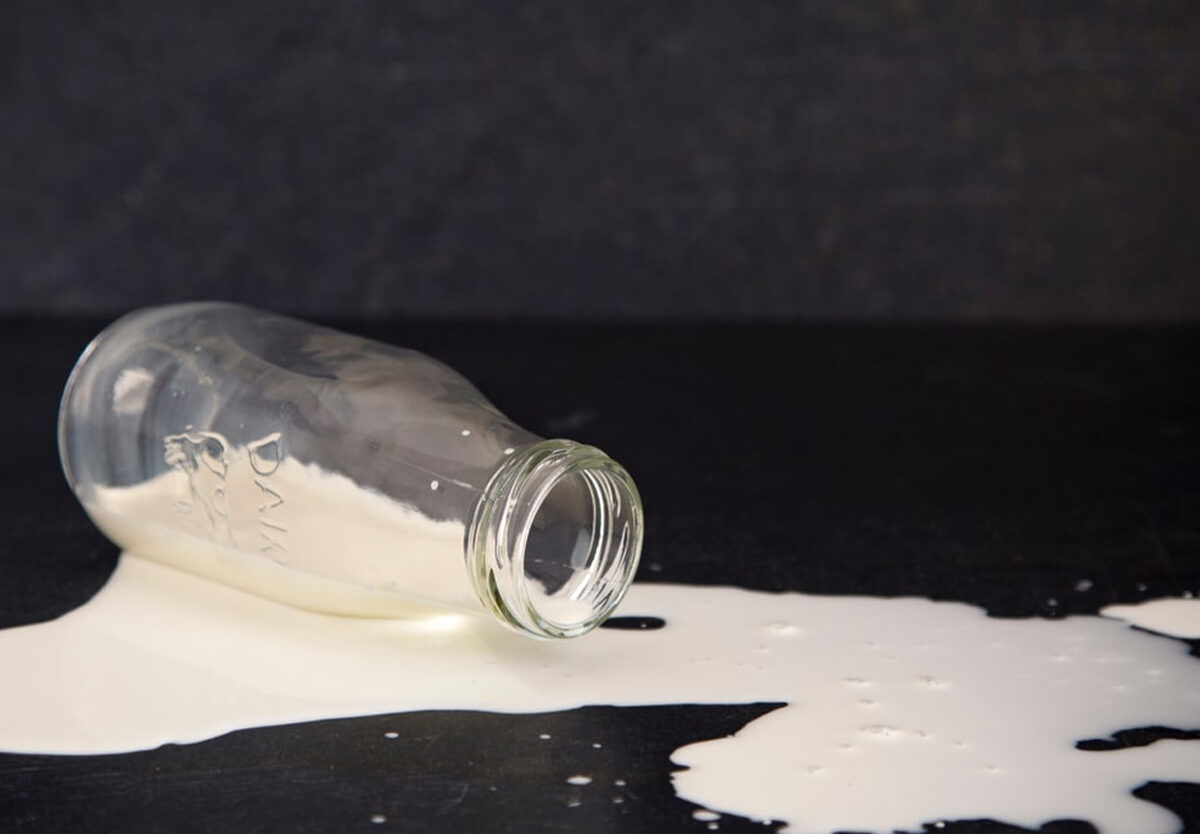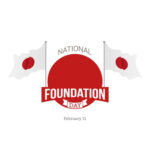If you think a day on the calendar dedicated to not crying over spilled milk sounds silly … so do we … yet, here it is, right on our calendar every February 11 — Don’t Cry Over Spilled Milk Day. Are you wondering who even cries over spilled milk, except maybe little tykes? Could you be crying over spilled milk and don’t even know it?
History of Don't Cry Over Spilled Milk Day
“Don’t cry over spilled milk” is the contemporary iteration of the idiom, “No weeping for shed milk,” originally published in 1659 in “Paramoigraphy”— a book of proverbs by Welsh historian and author James Howell. Proverbs are wise sayings offering sage advice and moral guidance for living life well, but not all idioms are proverbs. An example of another idiom is, “Feeling under the weather,” which means feeling unwell.
We will never know just how many glasses of milk James Howell saw spilled out and cried over before he was inspired to use all those messy little incidents to pen his sage advice. But we can guess it was often enough for him to observe that nothing is ever gained by fretting and worrying over trivial incidents like spilling a glass of milk and the small problems that inevitably happen just in the course of each day. Worrying and regrets don’t change the fact that something happened; looking back and feeling sad, depressed, or upset can never change anything. The best thing to do when we spill milk or make messes in our lives is to clean up the mess right away, the best we can, and then not waste time dwelling on them or worrying about them.
By the year 1738, Howell’s idiom had evolved, as language does, and was rephrased as, “’Tis a folly to cry for spilled milk,” in a witty essay on manners and making small talk, titled, “Polite Conversation” by Irish author, satirist, and clergyman Jonathan Swift. Today, we say “Don’t cry over spilled milk.” Although the words and syntaxes have changed over centuries and generations, Howell’s sage advice has not only stood the test of time, but it may be more relevant today than when it was first published more than 300 years ago.
Continuing to hold onto the past doesn’t change anything about the past. But many of us do just that, refusing to let go and let live and get on with life after making a mess of some aspect of it. So maybe a Don’t Cry Over Spilled Milk Day on the calendar isn’t so silly after all. We can all use a reminder to pause and reflect on how well we are adjusting and adapting to life’s little interruptions and make sure we are not carrying any regrets as baggage along our way.
Don't Cry Over Spilled Milk Day timeline
Dozens of glasses of milk spill, prompting James Howell to write an idiom about not crying over spilled milk, instead of pursuing making sippy cups.
The idiom “No weeping for shed milk,” is published in James Howell’s book of proverbs, “Paramoigraphy.”
James Howell continues to bank on idioms instead of sippy cups to stop crying over spilled milk until his death.
He publishes “’Tis a folly to cry for spilled milk,” literally calling people fools for crying over spilled milk and holding onto past regrets.
Howell’s descendants regret that James never patented his sippy-cup design, which today is a multimillion-dollar-per-year industry.
Don't Cry Over Spilled Milk Day FAQs
Is it ‘spilled milk’ or ‘spilt milk’?
It depends on where you live. The past tense of the verb ‘spill’ can be written as either ‘spilled’ or ‘spilt,’ but ‘spilled’ is the preferred form. ‘Spilt’ is most often considered a spelling error by American English teachers and editors. Outside of America, ‘spilt’ is generally accepted as a proper past tense form of the verb ‘spill.’
How do you stop crying over spilled milk?
Life can get messy. We all spill a little milk along the way in the form of mistakes and bad choices. Rather than crying over your mess, feeling sorry for yourself, and bemoaning every unfortunate situation with regret, the best thing you can do for yourself is first to accept that you cannot change whatever happened — what is done is done.
What are some famous idioms?
“A dime a dozen,” means something is common and relatively easy to acquire.
“Beat around the bush,” means avoiding saying exactly what you mean because it is uncomfortable to say.
“Break a leg,” means “Good luck,” a wish used commonly in the theatre between actors.
What to do on Don’t Cry Over Spilled Milk Day
Rejoice!
If you are living the good life without shedding tears over spilled milk — living without any regrets — congratulations! You get it. We have no doubt you will wear a smile and bring your happiness with you wherever you go. Keep spreading the sunshine.
Work the One-Step plan
If you just realized that you have been crying over spilled milk for a while now and are ready to stop letting past regrets rule your life, great! There’s a recovery plan for you. The Twelve Step Plan helps addicts overcome addictions, but for those crying over spilled milk, there is the One-Step Plan: Just. Get. Over. It. Today is the first day of the rest of your life. Begin living it without past mistakes or misfortunes dictating how you will live each of your tomorrows. Then breathe in a deep, fresh breath of peace.
Sing a happy song
If Don’t Cry Over Spilled Milk Day had a theme song, it would have to be the beloved acapella anthem celebrating positivity and happiness, ‘Don’t Worry, Be Happy!’ written and recorded by Bobby McFerrin in 1988. You will feel better about everything past, present, and future just by listening to this joy-filled little ditty that is sure to put a smile on your face and pep in your step.
Five Reasons To Stop Regretting Your Regrets
It zaps your energy
Allowing a past event to dominate today’s thoughts and decisions uses up the energy and strength meant for living today.
It compromises your body’s immune system
Holding onto past negative experiences negatively impacts our body’s immune system. Regretful people are more prone to illness and suffer mental health issues.
It exacerbates fear
Harboring longtime resentment and regrets can eventually interfere with a person’s decision-making abilities out of fear they will repeat the mistakes of their past.
It sends out bad karma
Whatever you call it, the negative energy of regret eventually chases friends and family away, leading to social isolation and a stagnant life — no one enjoys being around someone who is bitter, resentful, sad, and depressed all the time, which is an accurate description of many people who have lived a life with regrets.
It steals the joy meant for today
While we all wish life had a ‘do-over’ or ‘reset’ button to push every now and then, we don’t get these in life — dwelling on past sorrows invites bitterness and self-pity to take root, leaving no room for joy to blossom.
Why We Look Forward to Don’t Cry Over Spilled Milk Day
It gives us permission to forgive ourselves
The burden of holding onto past mistakes and misfortunes gives them the power to shape our today and our future. Sometimes the only thing preventing us from being able to let go of the past is forgiving ourselves. Don’t Cry Over Spilled Milk Day nudges us every year to think about any past regrets we may still harbor due to unforgivingness and take steps to make peace with ourselves.
It brightens our outlook on life
Letting go of regrets and worries over the past is like opening the door after a terrifying thunderstorm passes and finding a brilliant double rainbow. Don’t Cry Over Spilled Milk Day encourages us to release any regrets of the past so we can fully immerse ourselves in the brilliance of each new day.
It reminds us to live life in the present
Life is fragile and short. Don’t Cry Over Spilled Milk Day is a reminder that we must let go of the past to live fully in the moments we have today.
Don't Cry Over Spilled Milk Day dates
| Year | Date | Day |
|---|---|---|
| 2025 | February 11 | Tuesday |
| 2026 | February 11 | Wednesday |
| 2027 | February 11 | Thursday |
| 2028 | February 11 | Friday |
| 2029 | February 11 | Sunday |

































